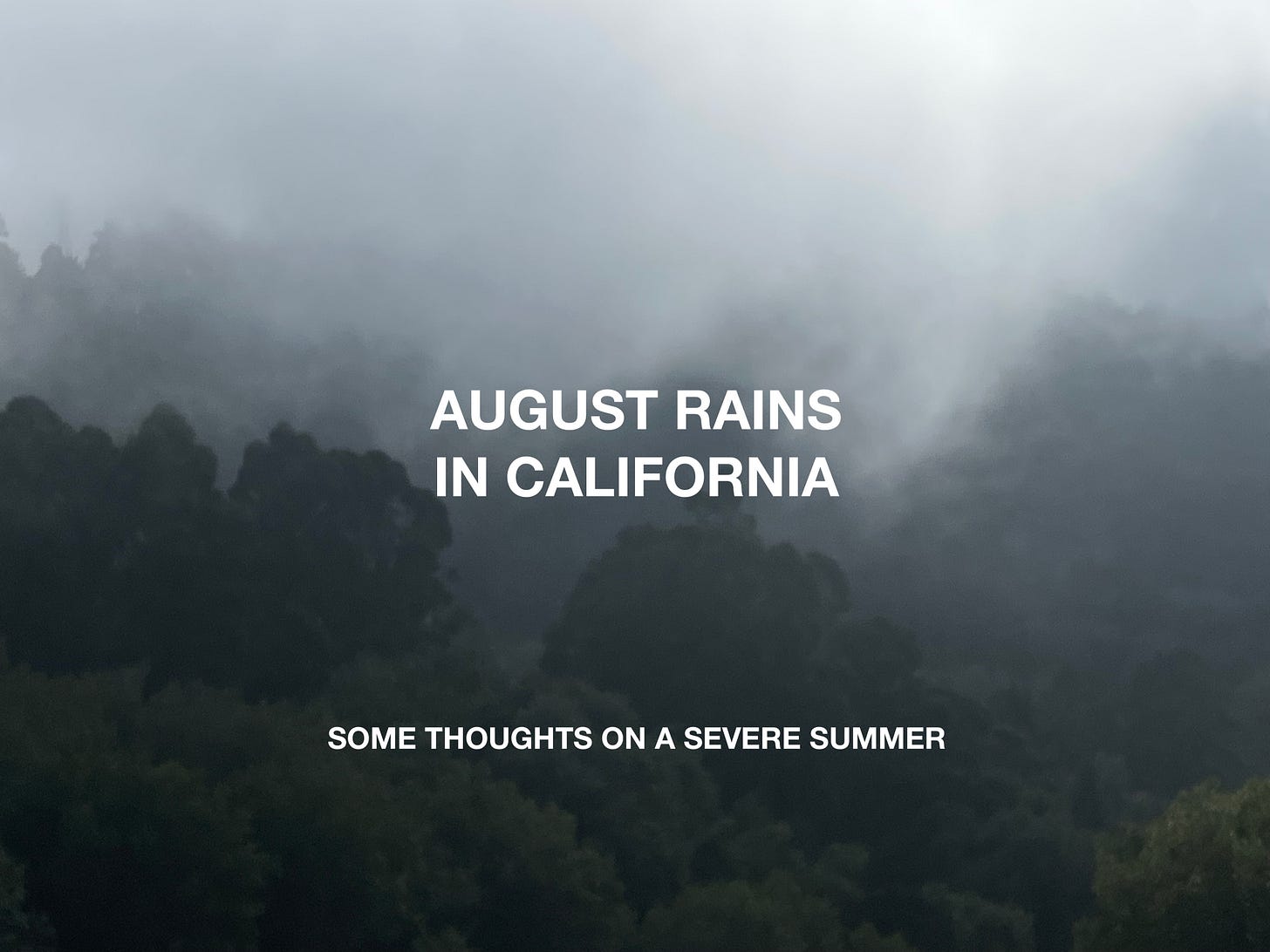I’ve been trying to write about how odd it is that, in the Bay Area, we are not having the same heat wave that the rest of the country and so much of the world is facing. I was trying to say this through a small moment I had, as if a story of myself having a quiet moment could be profound. They can be, and often are. But not for what I want to write here. This is all to say that a hurricane crept up the coast of Baja, Louisiana is on fire, that Lahaina burned, that this is one of the hottest summers on record, and for some reason the heat hasn’t been hitting the East Bay. It even poured on Monday in Tahoe National Forest.
As I was driving through Samuel P Taylor Park on my way to surf, though, a memory did creep up at me. I was little, maybe five or six years old and walking up to the elementary school in the middle of summer, walking by Sloap-y, a little spot my siblings and their friends would skate, and feeling thick droplets of rain begin to fall. The air was thick with heat, but the rain was falling and I remember the combination of excitement and disappointment I felt. For some reason tucked in that memory was the firm belief I had as a child that there was always a summer rain. For some reason, as a little kid I was convinced, at least for a moment long enough to remember, that rain always came at some point in the summer.
But now, that same rain that, for a brief moment in childhood excited and disappointed me at once, only brings about fear. Maybe this will be a new normal—hurricanes in the Pacific, dry dirt in the Atchafalya swamp (the Mississippi Delta), cardboard homes burning in a drying tropical paradise. Honestly, it’s likely. It’s easy to say that now, in the present. We are not living in certainty that those are our futures. But every day, we come closer to it.
People often say that we should prepare. We should stop burning fossil fuels so the Pacific hurricanes are only an occasional occurrence, not the new norm. It’s simple to say, and is the solution. But others will rebut, saying that livelihoods and ways of life will be ruined, some likely lost. Who wants to destroy our homes, cultures? Who wants to cripple this world that is all we’ve known and been taught? People respond this way often without the slightest hint of historical irony.
But it is not an either or scenario with climate change. This is the scenario. Whichever way it goes, livelihoods are destroyed. It’s only a matter of asking how long we want this world, our human global society, to last.
Driving back to the East Bay, the rain fell some more. I ended up stopping by a stream to jump in, the idea of being submerged in two bodies of water in one day sounded nice, even if the weather didn’t really suit it. As I reached the creek, sitting there quietly for a bit I saw, coming toward me, a group of river otters. They were catching fish after fish. The weather, it seemed, didn’t matter to them. They didn’t need to worry over the story, or lack thereof, they were telling themselves about the world. They just needed to fish, and look out for danger. But maybe that’s hyperbole. I don’t know what it’s like to be a river otter. And there is only so much to glean from a small moment like this. But I knew for certain this weather was only, at the most, giving them thoughts of the coming fall. Nothing more. For that, and the baby salmon in their mouths, I envied them. All I could do was think of their future.




